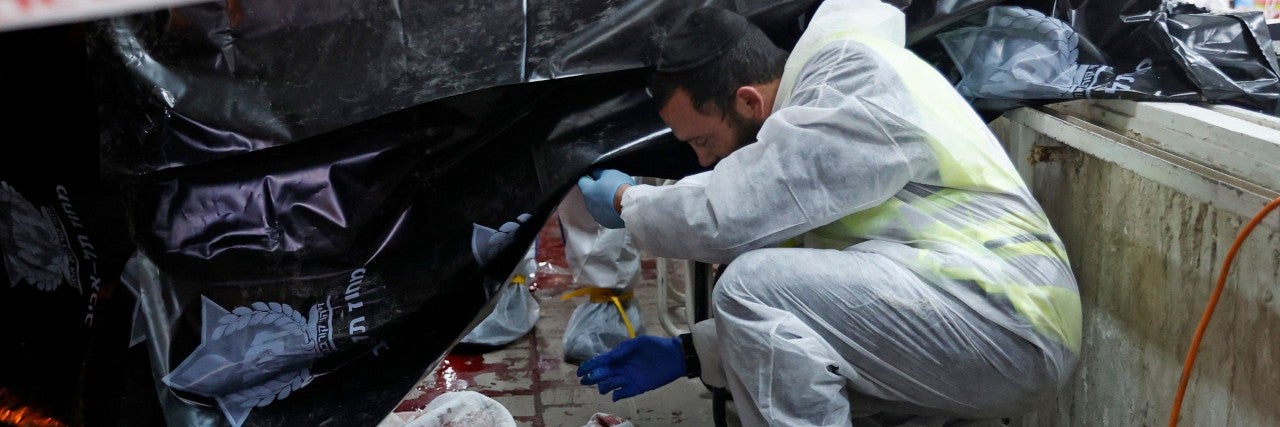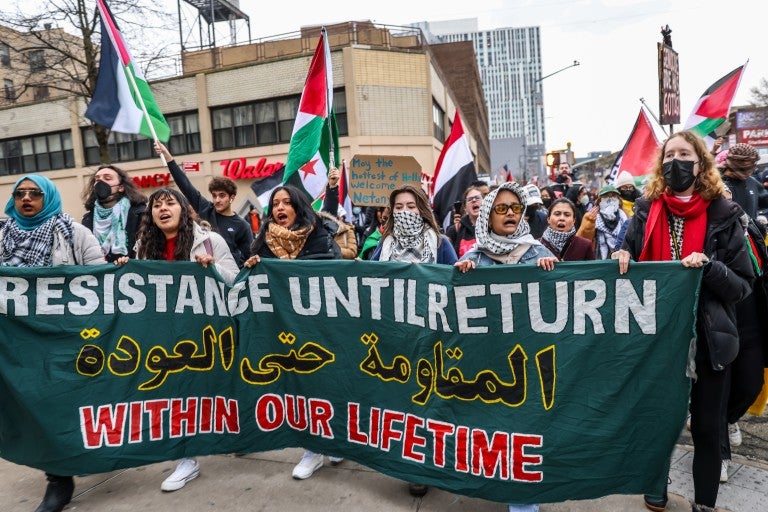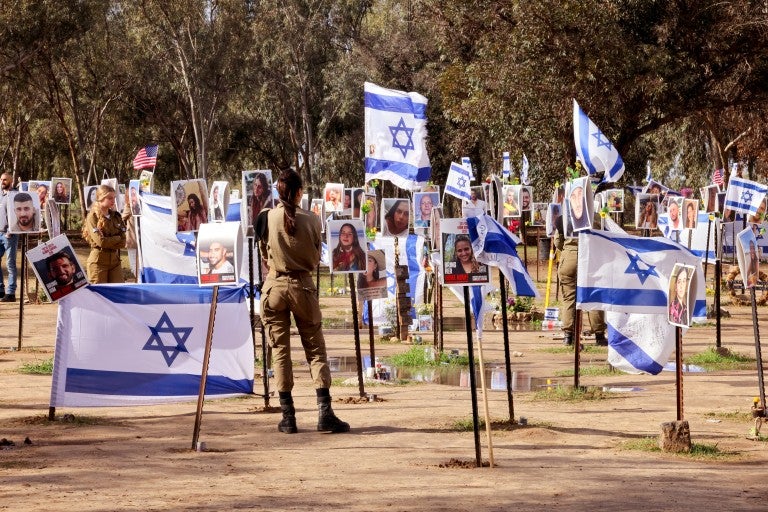March 30, 2022
For the past month, there have been twelve terror attacks across Israel including a father of three and two childhood friends shot at a bar in Tel Aviv; five people fatally shot in the Tel Aviv suburb of Bnei Brak; two Israeli border police officers murdered during a shooting rampage in Hadera; and four Israelis slaughtered in a knife and car-ramming attack in Beersheba. Dozens of others have been wounded.
Why are terrorists attacking Israel now?
Unlike the Palestinian nationalism that inspired the First and Second Intifadas, the most recent wave of terror attacks is fueled by a surge of Islamist extremism. Both Hamas, the Iran-backed terrorist group that rules Gaza, and Palestinian Islamic Jihad leaders have publicly called for young people “to go and murder Jews,” said AJC Jerusalem Director Avital Leibovich.
Those who have answered the calls are being celebrated as martyrs; with Palestinians in Gaza and the West Bank singing songs of praise and handing out candy in the streets after each horrific attack.
The historic “Negev Summit,” which brought together for the first time the foreign ministers from four Arab nations and Israel, along with the U.S. Secretary of State, also seems to have incited some of the violence. Hamas lauded the Bnei Brak attack and described it on a Hamas-run television channel as “a quick response to the summit of shame and disgrace held in the Negev.”
In his closing remarks at the summit, Israel’s Foreign Minister Yair Lapid said the summit’s participants would not let the terrorists dictate policy in the region.
“The terrorists’ goal is to intimidate us. To make us afraid to meet and build the relationships and agreements between us,” he said. “They will not succeed. We will not let them.”
How did Arab leaders visiting Israel react?
Instead of undermining efforts for peace, the terrorist attacks had the opposite impact. In an unprecedented show of unity made possible by the Arab-Israeli normalization agreements of 2020, including the Abraham Accords, the four Arab ministers expressed solidarity against terror in response to the wave of attacks against Israel.
Abdullatif bin Rashid Al Zayani, Minister of Foreign Affairs of the Kingdom of Bahrain: “I would like to start by condemning the terrorist attack which took place last night, claiming the lives of two border policemen. And I would like to convey our condolences to the bereaved families and reaffirm our firm stance against terrorism in all its forms.”
Sameh Shoukry, Minister of Foreign Affairs of Egypt: “We certainly also consider and have on every occasion condemned all resort to violence, to terrorism, to incitement, and believe that it is our role as members of the international community but also as Arab states, states where there is a Muslim majority, as President al-Sisi has always declared, that we need to address the religious narrative and to confront extremism and terrorism and thereby provide peace and security for our region.”
Nasser Bourita, Minister of Foreign Affairs, African Cooperation and Moroccan Expatriates of the Kingdom of Morocco: “I would like to start by reiterating Morocco’s strong condemnation of the terrorist attacks of yesterday in Hadera and present our sincere condolences to the victims and our wish of recovery to all the injured. Our presence today is, I think, the best response to such attacks.”
His Highness Sheikh Abdullah bin Zayed Al Nahyan, Minister of Foreign Affairs and International Cooperation of the United Arab Emirates: “And this is what I think goes against what happened yesterday. It’s by our standing together, it’s by our people-to-people relationship, it’s by creating a better environment for our businesses to work with each other – that’s the way we can go after the narrative of hate, of incitement, of terror. We will prevail, no doubt. It’s going to cost us, but it matters.”
Is ISIS trying to make a comeback in the region?
No. Even when the Islamic State was at its peak in Syria and Iraq, it never had a presence in Israel, and it still doesn’t.
Earlier this month, ISIS named its third so called “caliph:” Abu Hasan al-Hashimi al-Qurayshi, the older brother of Al-Baghdadi. He replaces Abu Ibrahim al-Hashimi al-Qurayshi, who led until he was killed in another U.S. raid in northern Syria in February.
Though ISIS has claimed responsibility for the attack in Hadera that killed two 19-year-old Israeli Border Police officers and an Islamic State supporter killed four people and injured two others in Beersheba, these are lone wolf attacks inspired by social media, Leibovich said. “There is no ISIS cell in Israel. It doesn’t exist. It never existed.”
What comes next?
The timing of these terror attacks also has heightened concerns about an already complicated security situation in Jerusalem in April.
The occasional confluence of religious observances – Passover, Easter, and Ramadan – always stirs strife as Israel tries to accommodate and protect pilgrims of all three faiths making their way to Jerusalem’s Old City.
Muslims began observing the holy month of Ramadan on April 2; Jews observe the weeklong Passover starting April 15; Roman Catholic and Protestant Christians celebrate Easter on April 17 while Orthodox Christians celebrate on April 24.
Experts say terrorists and extremists often seize on these concurrences as an opportunity to further destabilize the region.
They also like to perpetuate the myth that Israel is preparing to take over the Temple Mount. But that is simply not true. Of the nine gates surrounding the Al-Aqsa Mosque compound, only one serves as a point of access and only during certain hours for visitors to the Temple Mount. Muslim worshipers are free to enter through any of the other eight to reach their holy site.
To defuse tension, Israeli police have already said they will accommodate Muslims visiting Al-Aqsa, Christian pilgrims attending church, and Jews visiting the Temple Mount during the confluence of holy days. Israeli officials also met with the Jordanian king in hopes that he will exercise his influence to prevent Palestinians from rioting near the Temple Mount.


